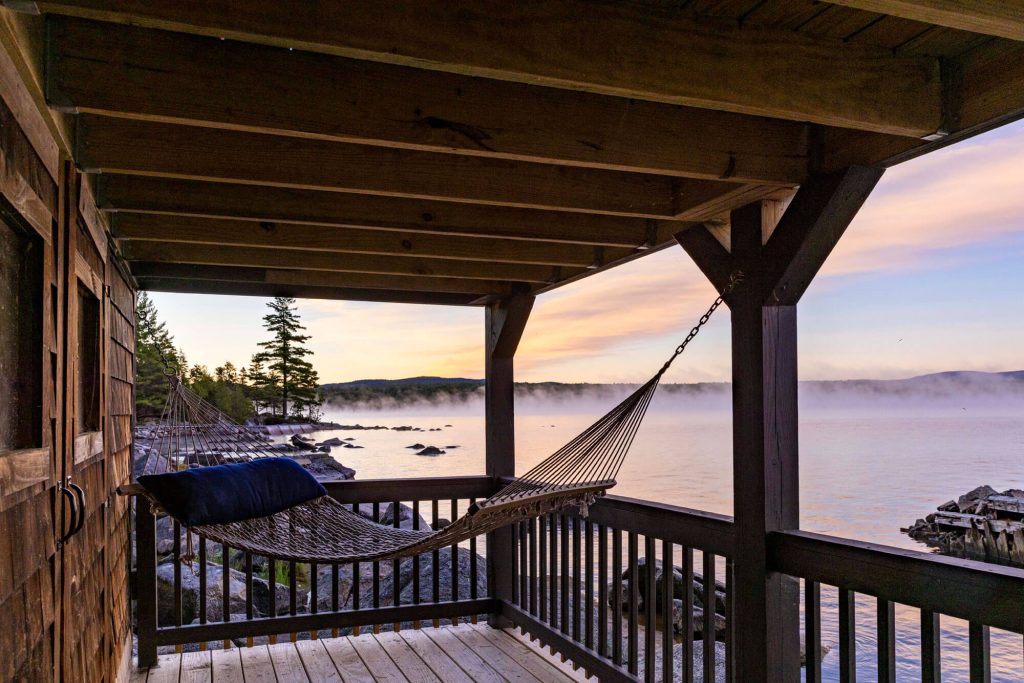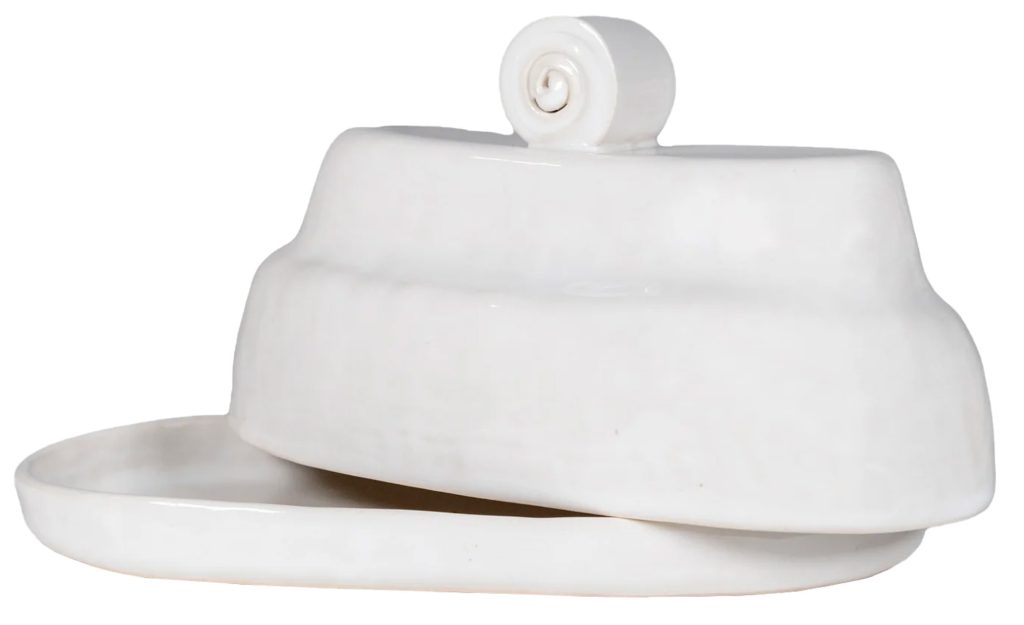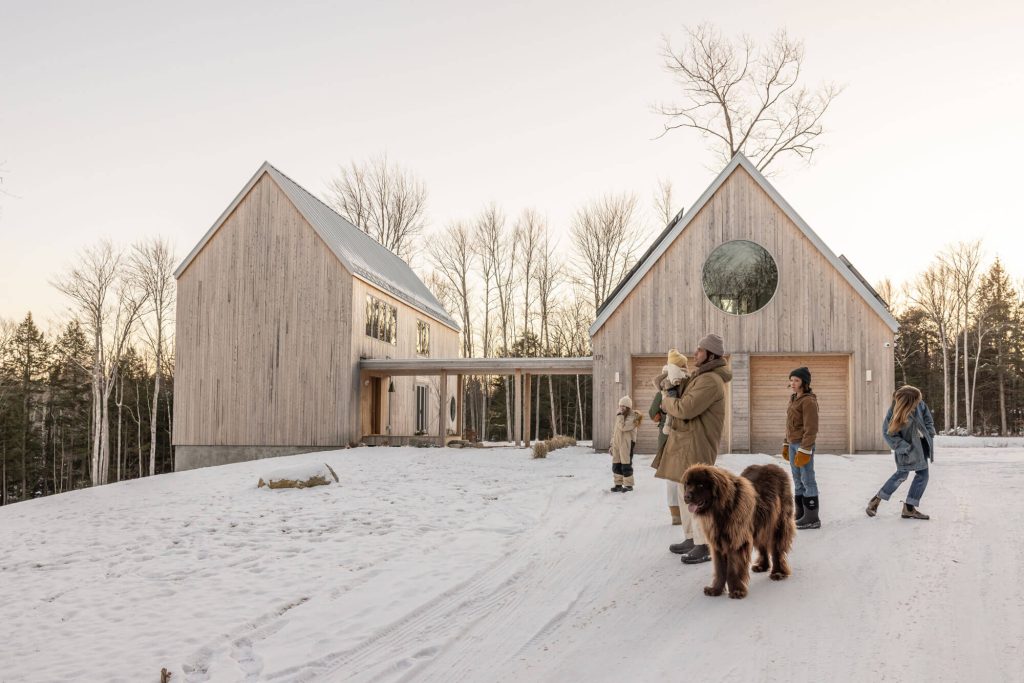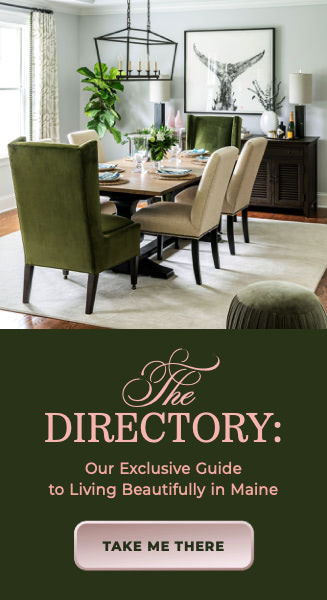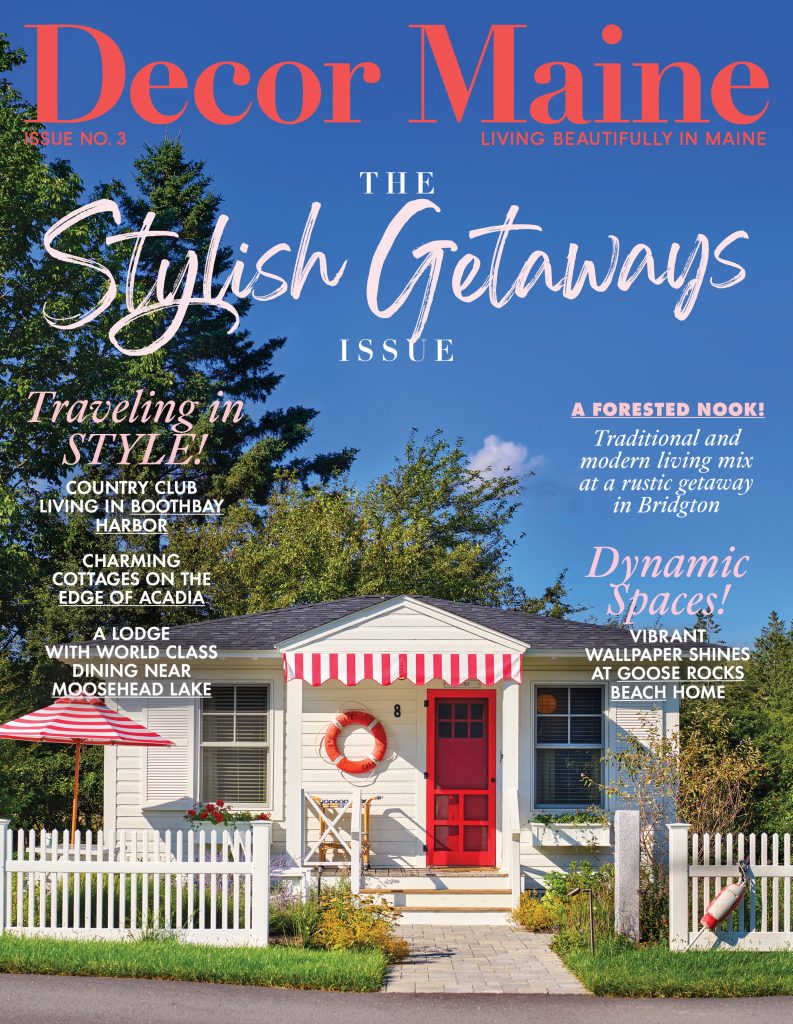Stoking the Flame
Campfire Pottery
@campfire.pottery
A ceramicist couple create thoughtful dishware that encourages their customers to slow down and share meals with loved ones
Photos by Meredith Brockington
Founded by ceramicist couple Kristen and Joe Camp, Campfire Pottery seems branded by fate and fire. Often using the Japanese method, Raku, in which unfinished pieces of clay are put into an outdoor kiln resembling a campfire, the latter around which people have been gathering since the beginning of time. This flame ignites community, echoing their ethos of bringing people together.
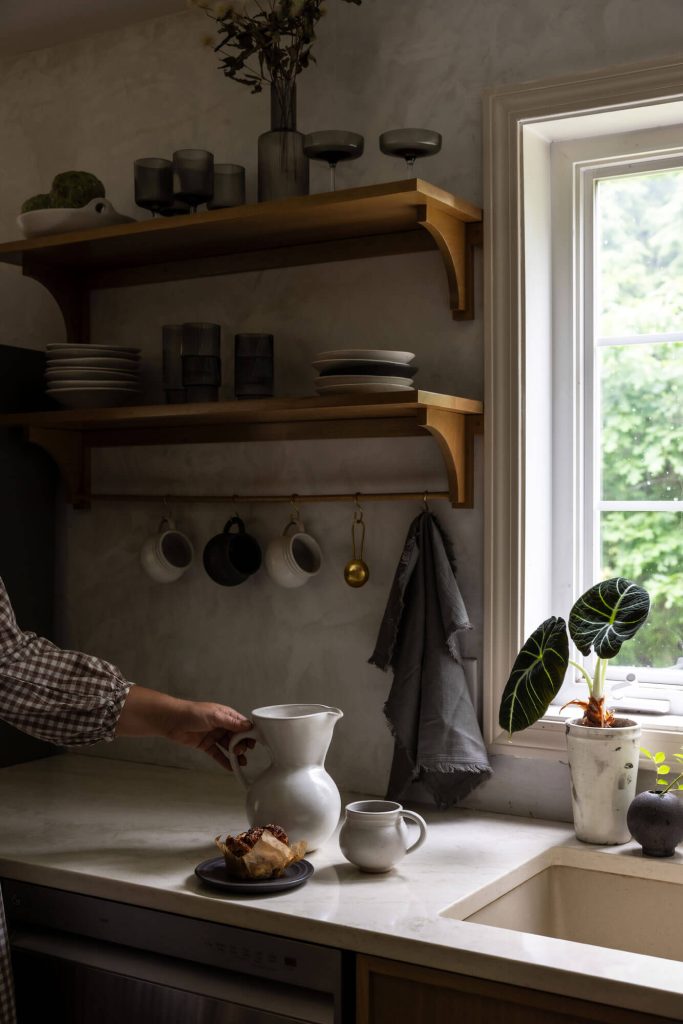
The duo originally moved from Atlanta to Portland in 2014, thinking they’d only be in the city for a couple of years. Yet, the creative spirit of Maine captivated their minds and called them to grow roots for their business. Campfire Pottery’s ceramics speak to the state’s rusticator influence. Each of the pieces are functional, simple, and Earth-toned—and yet, the attention to detail and inherent artfulness is evident.
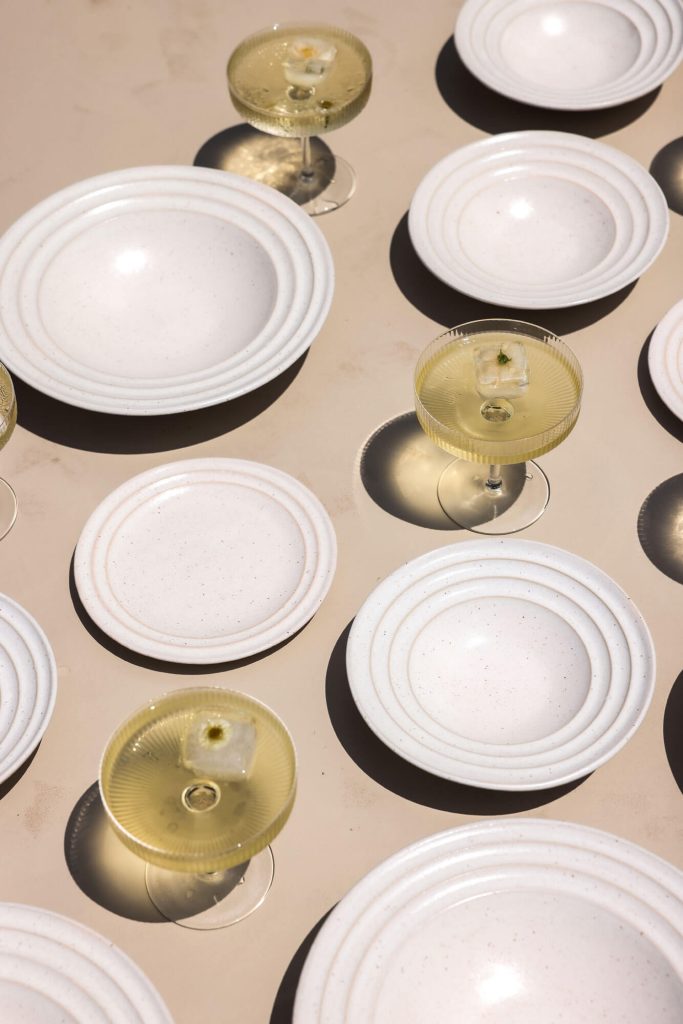




Portland’s nationally recognized food scene informs the shape and purpose of the design. Through relationships with local chefs and their own love of cooking (Campfire’s Instagram is full of Joe’s gorgeous meals, skillfully plated on their dishware), the duo understands how to heighten the presentation of food. Kristen’s past experiences with interior design projects bring a stylistic edge to each piece, and allow her to consider how to make everyday moments feel anything but ordinary.
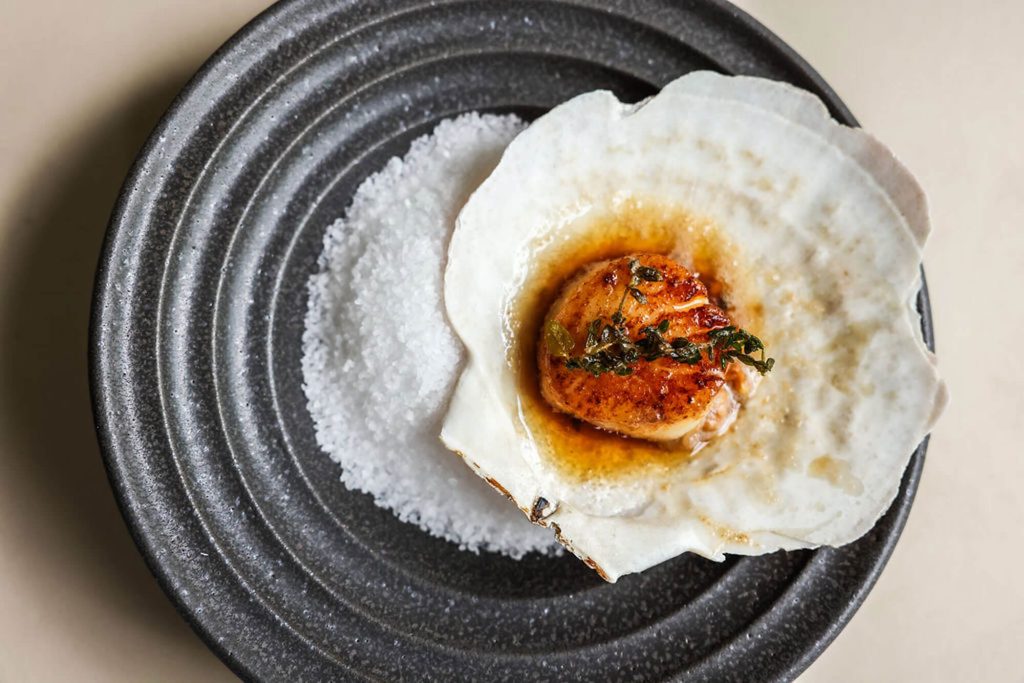

Their latest collection, named Ripple after the rippling edge around each piece, is a magnificent frame for food, inspiring the home chef to prepare a thoughtful, slow meal. Campfire Pottery is also introducing their newest Lunaria glaze, a happy accident of unconventionally mixing two glazes together. The result: a soft, white finish that feels natural and demure, striking a balance between glossy and matte. Find Campfire Pottery’s pieces at its Portland retail space, Ember, where you can also find work by fellow craftsman Tanja Cesh, founder of Mulxiply.
Fantastic Fibers
Bowerbird Studio
@betsybowerbirdstudio
Betsy Leighton’s love of color and texture come together in her dazzling blankets, aprons, and accessories that add a pop of joy to your home
Photos by Michael D. Wilson
Bowerbird Studio owner Betsy Leighton has always been deeply compelled by color and texture. Her travels to Oaxaca, Mexico, and to Santa Fe’s International Folk Art Museum bring color induced wonder. “A mind meld for me; you are immersed in a world of color, texture, and shape. It’s my happy place,” says Betsy.
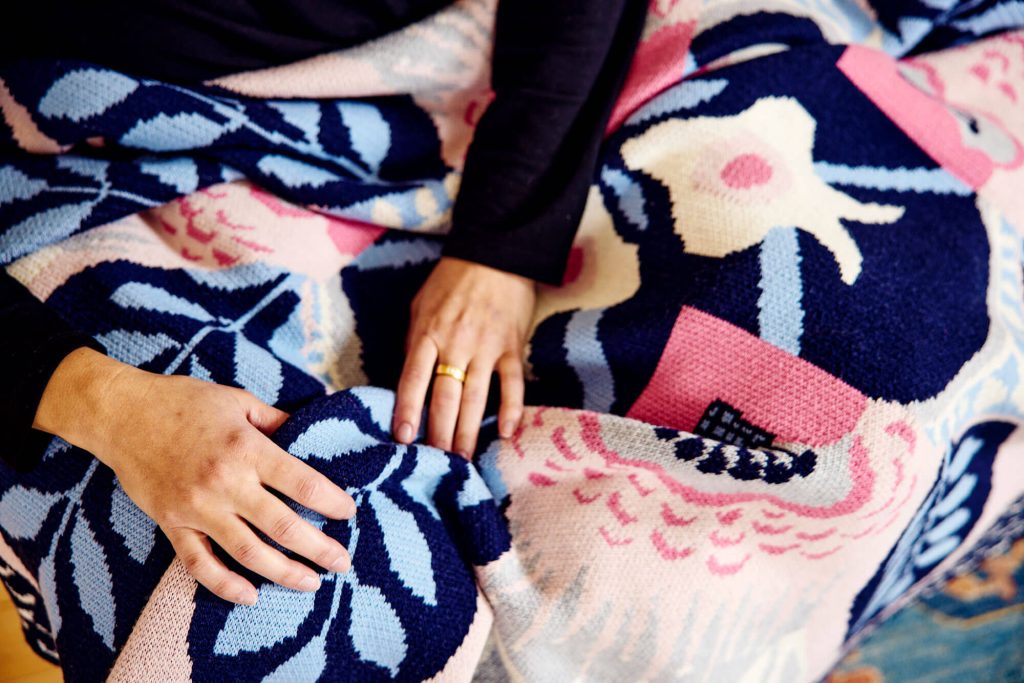

Upon moving to Maine in retirement, Betsy began sewing. She made pillows inspired by the Lucy Boston pieced quilt pattern, turning out piles of stitched blocks before assembling them into vibrant compositions that became pillows. Next came aprons sewn from Japanese linen, a fabric notable for its heft and durability. The Good Supply in Bristol began carrying Betsy’s work, and Bowerbird Studio was born.
A dramatic shift in her work came in the form of merino wool throw blankets which were influenced by the pieced quilt blocks, this time scaled up and designed in vibrant color. Betsy found other inspiration for these patterns in the bounty of natural beauty in Maine, from flowers in her garden to sea glass and pottery shards to the constantly changing colors of the ocean.
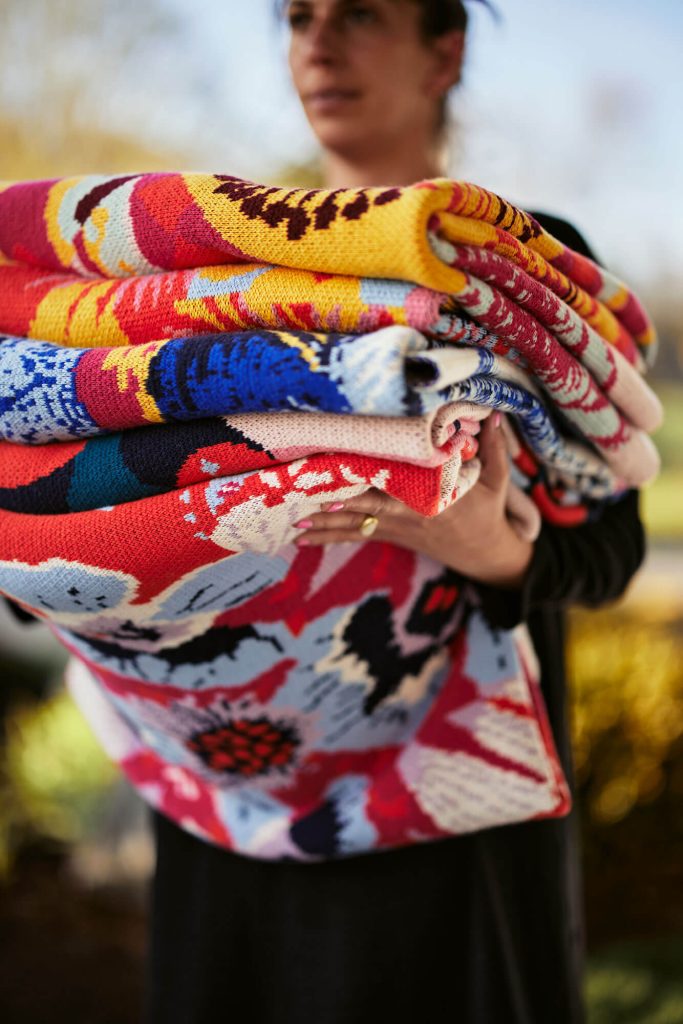

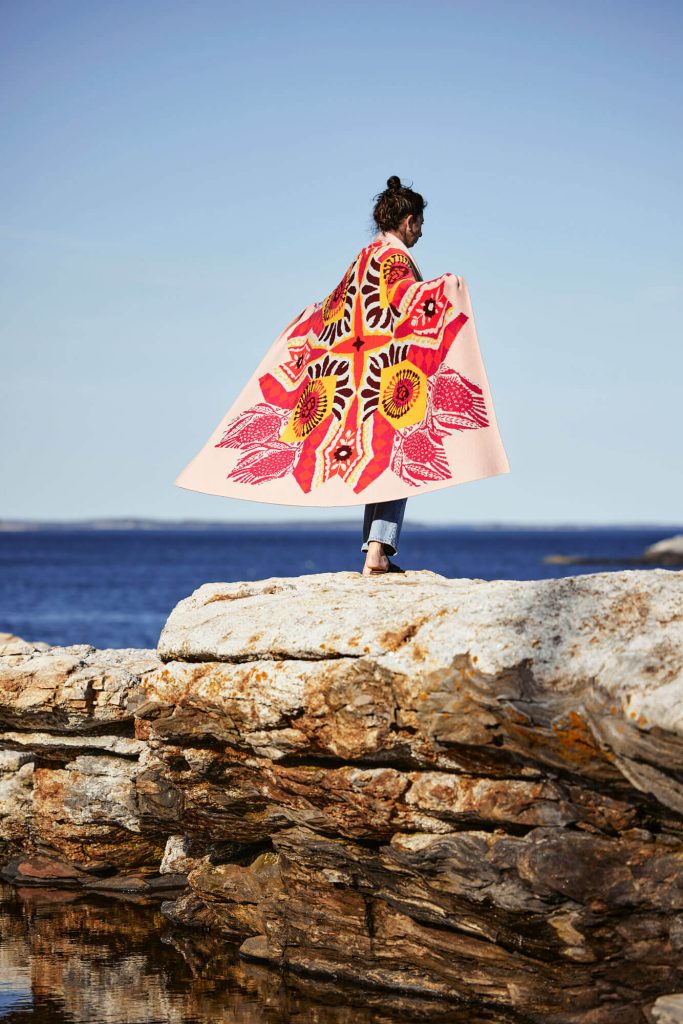

Betsy’s bold prints elevate any space. At home she places blankets against a backdrop of white slipcovered love seats; several more are folded over a ladder next to the hearth. “My daughter is a fiber artist as well; she creates large wall pieces tufted with an industrial tufting gun. One of her pieces hangs over our fireplace; it’s fun to see our work in conversation.”
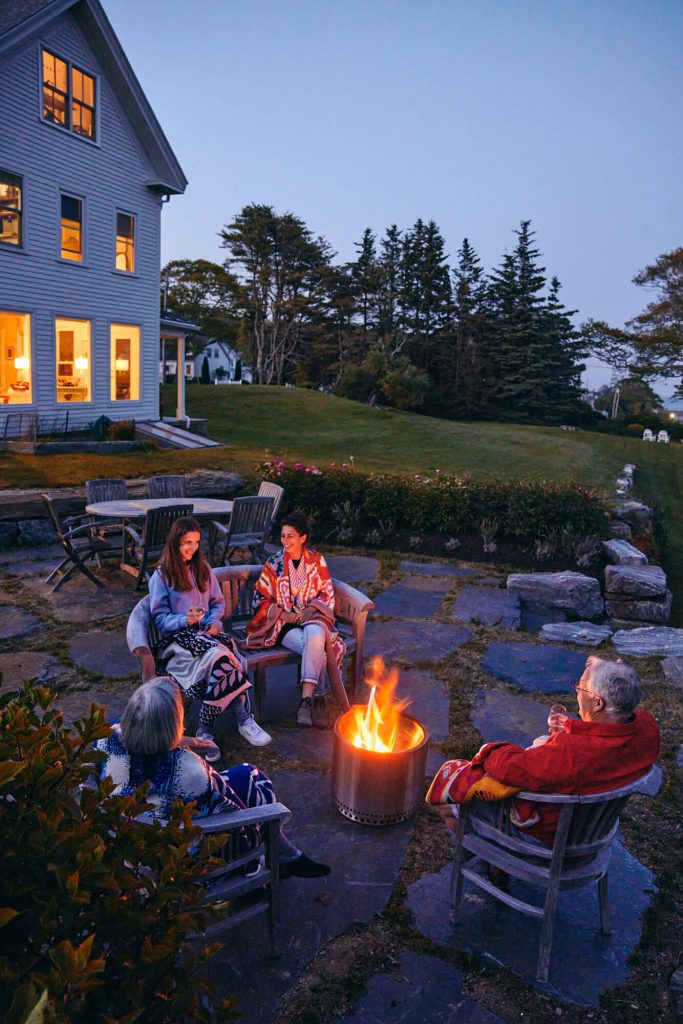

Bowerbird Studio’s blankets and linens are available at Maine Craft Gallery in Portland, The Good Supply in Bristol, Beach Plum Company in Newcastle, Margo Moore Studio in Camden, and Kimball Shop in Northeast Harbor.
Tried & True Leather
Whiskey Leatherworks
@whiskey_leatherworks
Montana-originated brand Whiskey Leatherworks brings a taste of the West to Maine with their luxurious, craft belts and leather accessories
Whiskey and leather are the perfect duo. Imagining a whiskey distillery conjures images of aging barrels and leather-wrapped flasks. Both whiskey and leather have a visceral smell and identity, which founders Dan and Ally Earnest have blended together in their lifestyle goods company, Whiskey Leatherworks.
This grassroots business was born in a garage in Montana and named after a horse their daughter was taking riding lessons with at the time, Whiskey Leather. Dan and Ally started making small-batch leather goods. “We took our business name and worked a broader model into it,” Ally says. “It inspired us to reach out to distilleries, and we began offering private label and wholesale products.” Now, they work with over 50 small-scale distilleries, resorts, and outdoor outfitters across the U.S, supplying handmade leather goods, belts, and barware (the “Traveling Mixologist” set is a budding cocktailer’s dream).
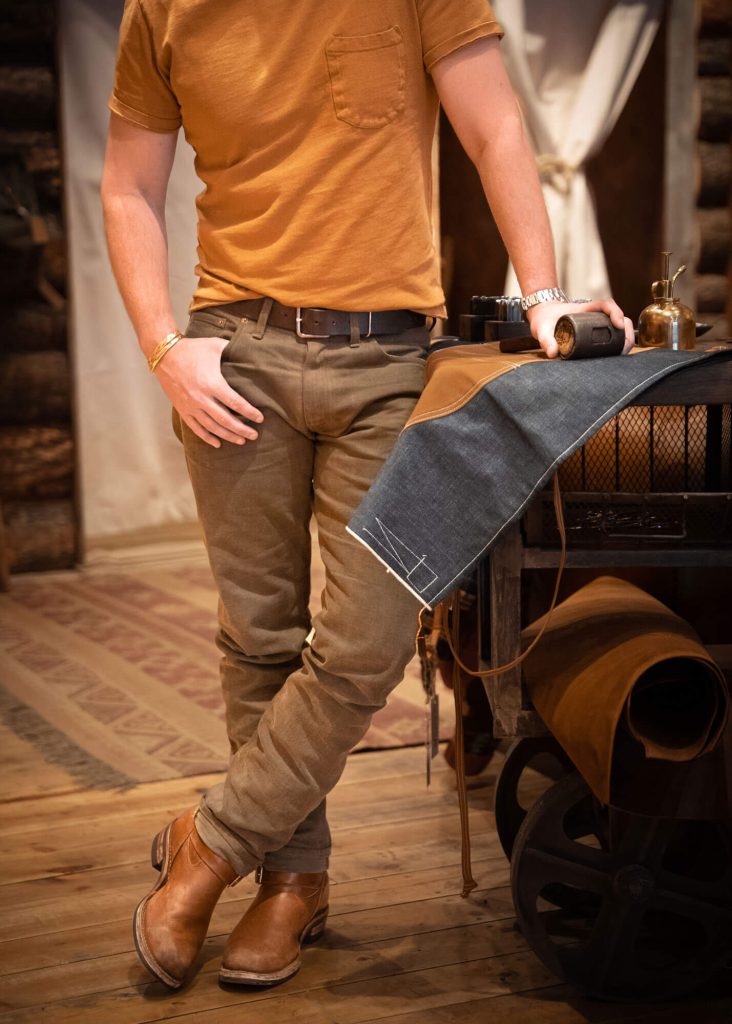

Whiskey Leatherworks is selective about the distilleries with which it partners, gravitating towards those whose missions echo its own: a focus on small batch and high quality. “In the whiskey world,” Ally says, “every barrel is a little bit different, just as every leather piece is a little bit different.” The couple’s selectiveness extends to the tanneries from which they source the leather. Working exclusively with full-grain leather ensures that each strip is thick, long-lasting, and made with uninterrupted fibers to create a gorgeous product. Their goods age finely with time—the leather will patina over the years, taking in oils and reflecting the lives of those who wear it.
Whiskey Leatherwork’s new retail space in Lower Village, Kennebunk is now open, where you can find a selection of barware, belts, wallets, dog leashes, flyfishing accessories, and more. Ally and Dan enjoy hearing where people encounter their goods in other states—it’s common for someone to swing by the shop and say, “Did I see your products in Key West?” …or Montana, or any town in the U.S. that has a proclivity for whiskey, leather, and fishing. Because of the connected nature of their expansive community, they’ll know exactly where you found them.
Let There Be Beautiful Light
OCB Design
@ocbdesign
Woodworker Otis Baron creates midcentury modern inspired, functional artwork and design-forward lighting to brighten any home
Photos courtesy of OCB Design
Woodworking has deep roots in Otis Baron’s life, beginning in his New England childhood. His father, a boat builder, inspired his love of the medium. While studying at Massachusetts College of Art and Design, Otis created a wooden towel holder for his apartment. It was his first piece of functional woodworking, and the catalyst for his eventual career. He still has it in his woodworking studio, a symbol of how far he has come.
Since then, Otis has immersed himself in the craft, learning how to hone his attention to detail and expand his technical skills with projects ranging from Victorian-era restoration to high-end architectural woodwork.
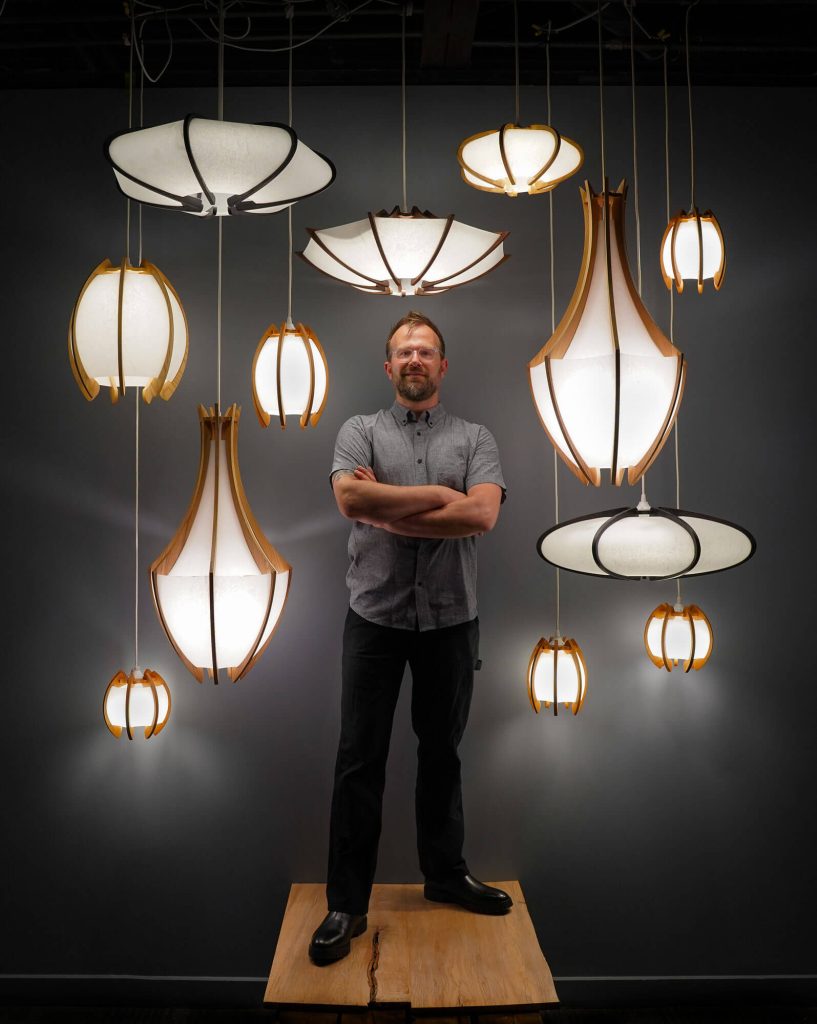

At OCB Design, he’s funneled those large-scale projects skills into custom furniture and designer lighting. “The light fixtures are the most personal expression of my art,” he says. “I love working in that medium and fusing ideas from work I’ve done in the past. They tie in my sculptural background, but I’m making a piece of art that is useable.”
The made-to-order pieces on his website are available for customization. “Everybody calls my style midcentury modern,” he laughs. “It’s definitely a big influence, but it’s more of a contemporary response to that era.” Otis modernizes this aesthetic by considering how nature arranges itself organically, and from its patterns comes the geometries that appear in his designs.
“I’ve made a career out of saying yes,” says Otis, like when he recreated the historic buildings of Newark, New Jersey, for a model train enthusiast, including a scaled set of Newark’s Penn Station, complete with miniature buildings carved on his CNC machine. See more of his work on the OCB Design website, or in person at Maine Craft Gallery in Portland.
Practically Perfect
Kurier
@shopkurier
Jasmine Clayton makes practical shoes and accessories without skimping on style—we’re in love with her high-quality leather wares produced in Portland
Photos by Abby Lank
Kurier founder and Maine College of Art and Design (MECA&D) student Jasmine Clayton found an irrefutable connection between Portland’s creative scene and MECA’s teachings. Though she traveled following her time at the college, she kept finding herself drawn back to Portland—before eventually putting down roots. “I learned a lot about how to be an artist during my time at MECA,” she says. “It shows that 20 years later, I, as well as my friends and classmates, are all working and doing something creative. So many of us stayed in the city.”
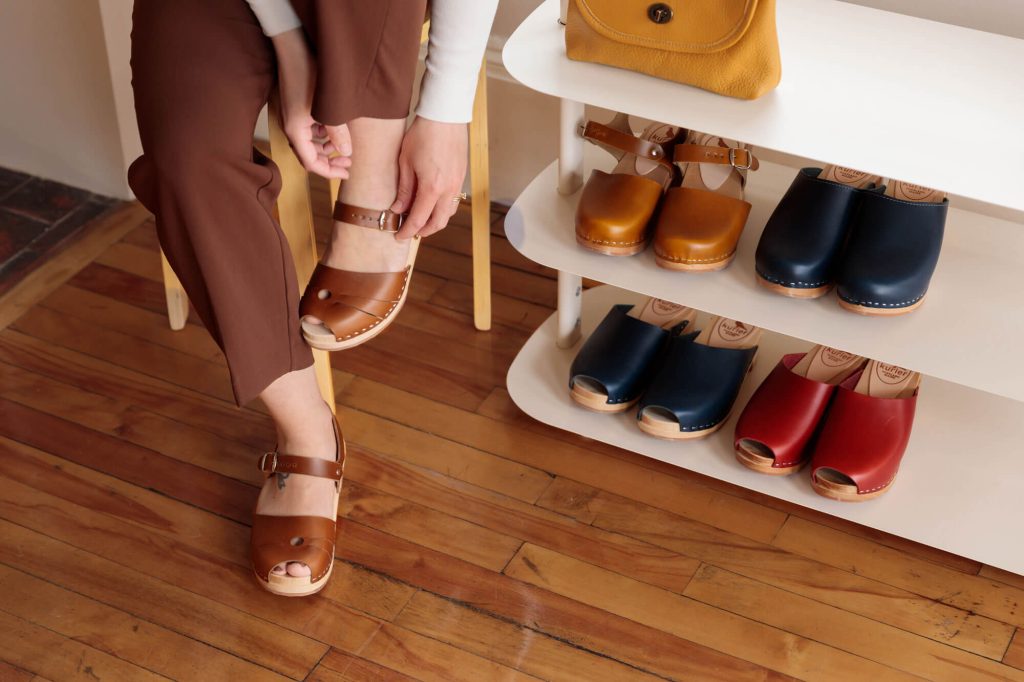

Handmade leather clogs are Jasmine’s statement pieces, though she also offers gorgeous bags and other leather accessories at her Portland store, Kurier. Everything she makes is born from the question: What do I need? A proponent for functionality, she only designs items that she would personally use on a daily basis. Jasmine adds, “I’ll make wedding shoes for people, and my selling point is that you can keep wearing them after the wedding!”
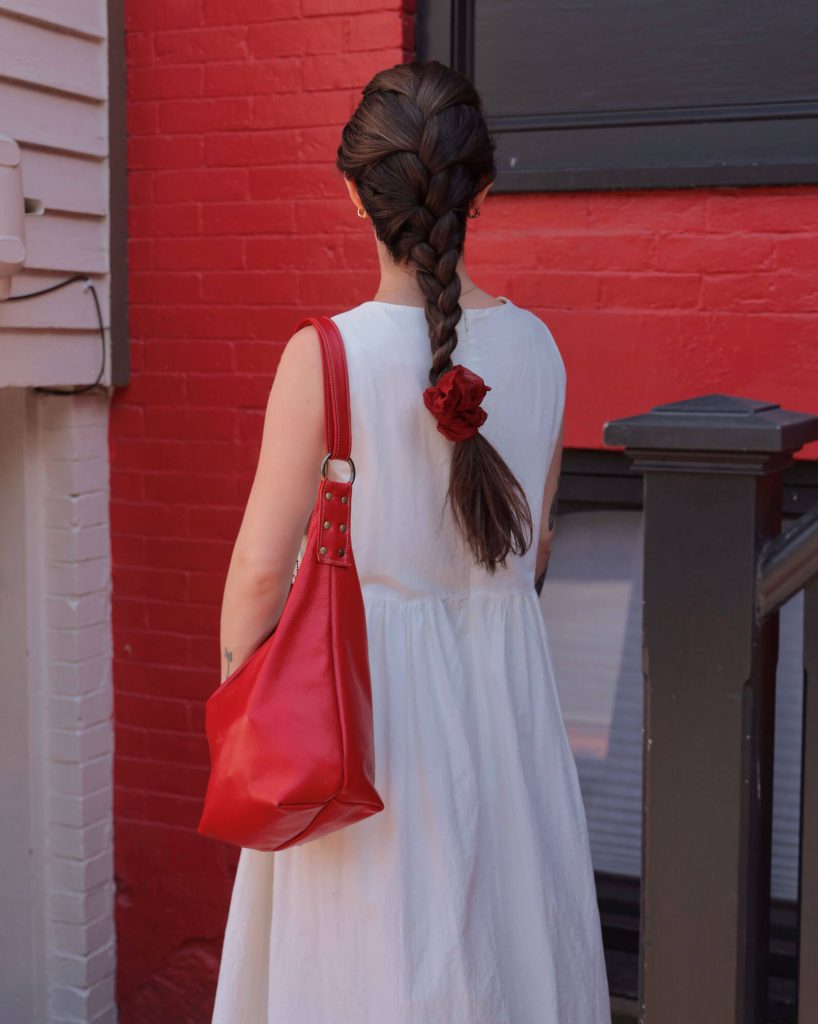

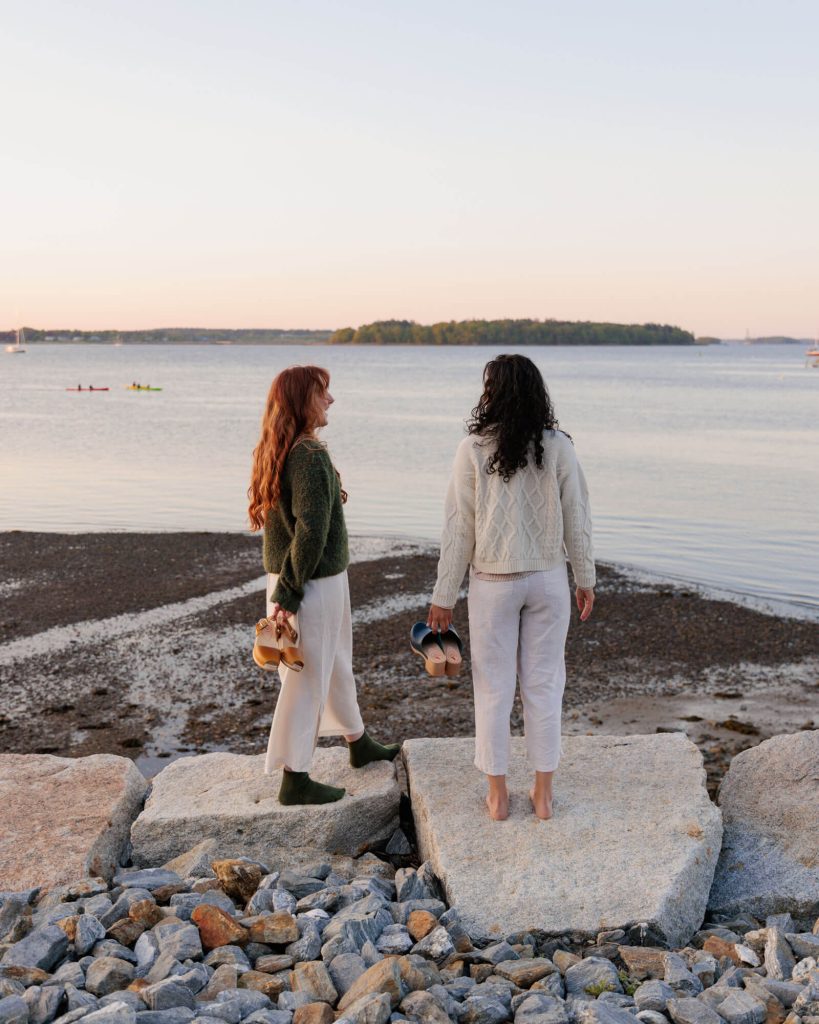

Because her designs consider maximum use and years of wear, Jasmine is meticulous about each stitch in her high-quality clogs and accessories. Her impeccable craftsmanship and attention to detail ensure that each clog, bag, and wallet is uniform in look and feel before it hits the market. “I’m touching each product before putting it out into the world,” she adds. “I had a teacher in college that drilled the idea into me that you can have a beautiful idea, but if it’s not made well, it’s not worth anything at all. I want each product that I put out to be a true piece of craftsmanship.”
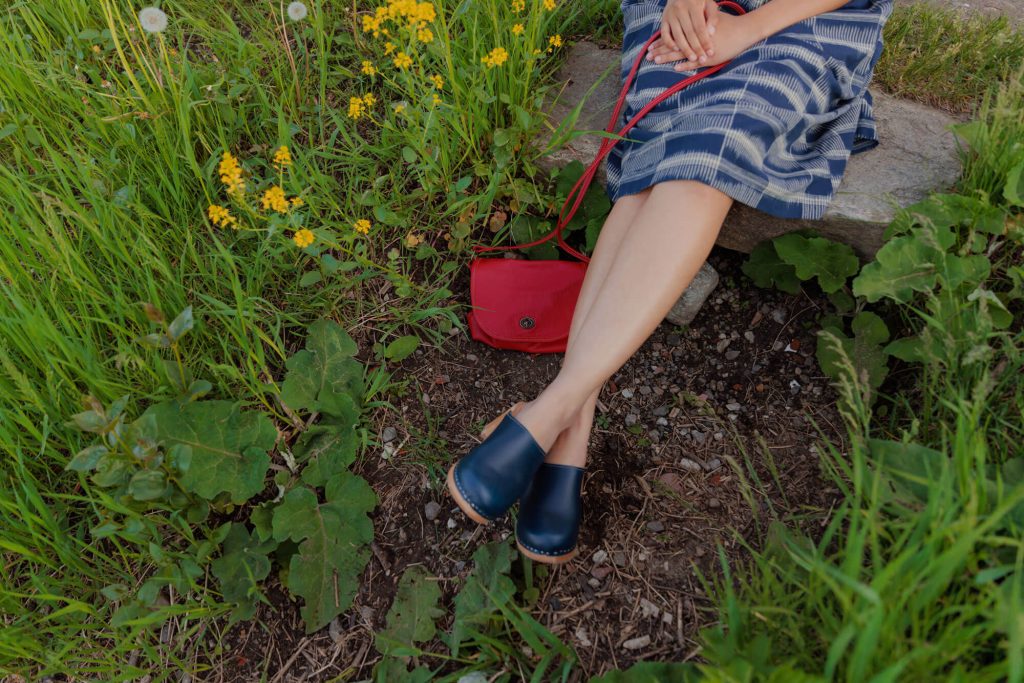

Jasmine sources her leather from sustainable tanneries, and honors that the material was once a part of a living thing that came of the Earth. “If you bury a pair of my clogs in the ground,” she says, “there will be almost nothing left of that clog in 10 years.” The clothes she sells at Kurier’s retail store are also sourced sustainably and made of linen, wool, cotton, and other natural materials. Fit, comfort, durability, and sustainability are all integral to her values as a design-forward craftsperson.
Living on the Edge
STUDIO89
@s89maine
The dynamic woodworking duo behind STUDIO89 take locally sourced wood and transform it into skillfully designed furniture and decor, bringing nature inside
Photos by STUDIO89
When asked about their collaboration process, Nondas Iacovou and Melissa Fuller of STUDIO89 laughed: “We’re thinking, collaborating, designing from our 5 a.m. morning coffee to 10 p.m. at night.” The couple, co-founders of the studio (named for the year they met), share a passion for woodworking that inspires and fuels them both. At different points of the interview, they each described not being able to sleep when new design ideas pop into their heads.
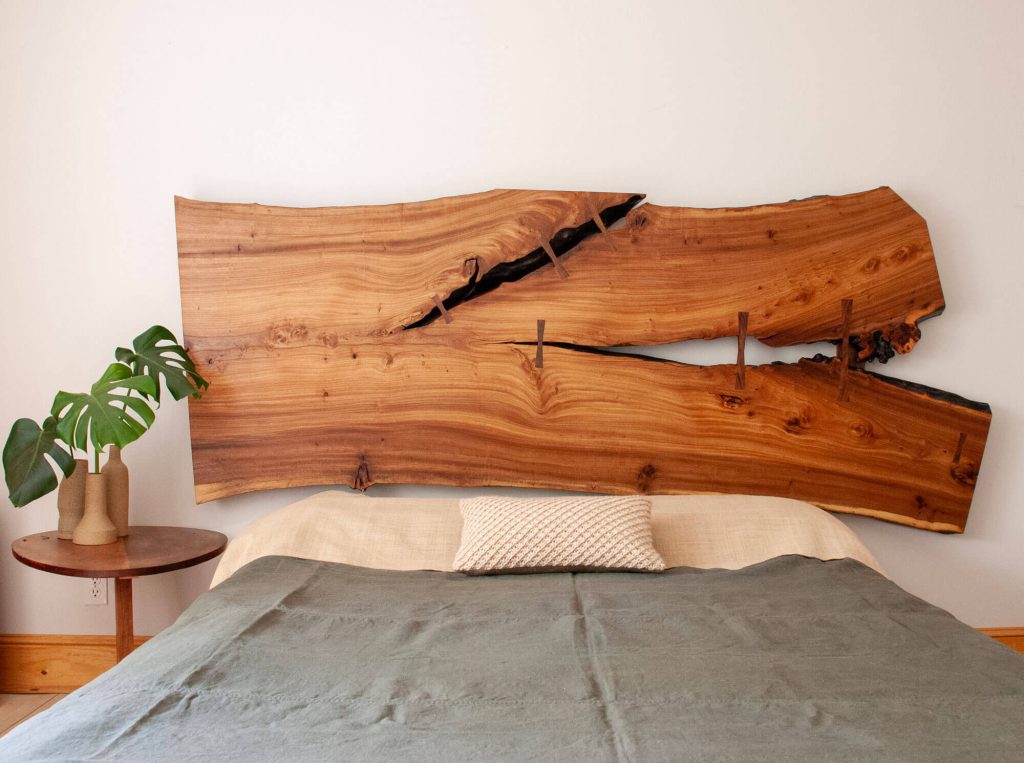

The Scarborough studio’s proximity to the ocean is essential to their craft, Melissa says: “To be on a coastline is really inspiring in ways that people who love the ocean can’t really put into words.” The couple’s wood pieces are modern yet retain the sensibility of Maine’s natural environment.
The connection to Maine’s resources extends to the sourcing of the wood—as locally as possible. “The wood tells us what it wants to be,” adds Nondas. “Specifically with the live edge pieces, they have no preconceived design. Then the wood will say if it wants to be a headboard or a table. The natural material is so plentiful up here.”
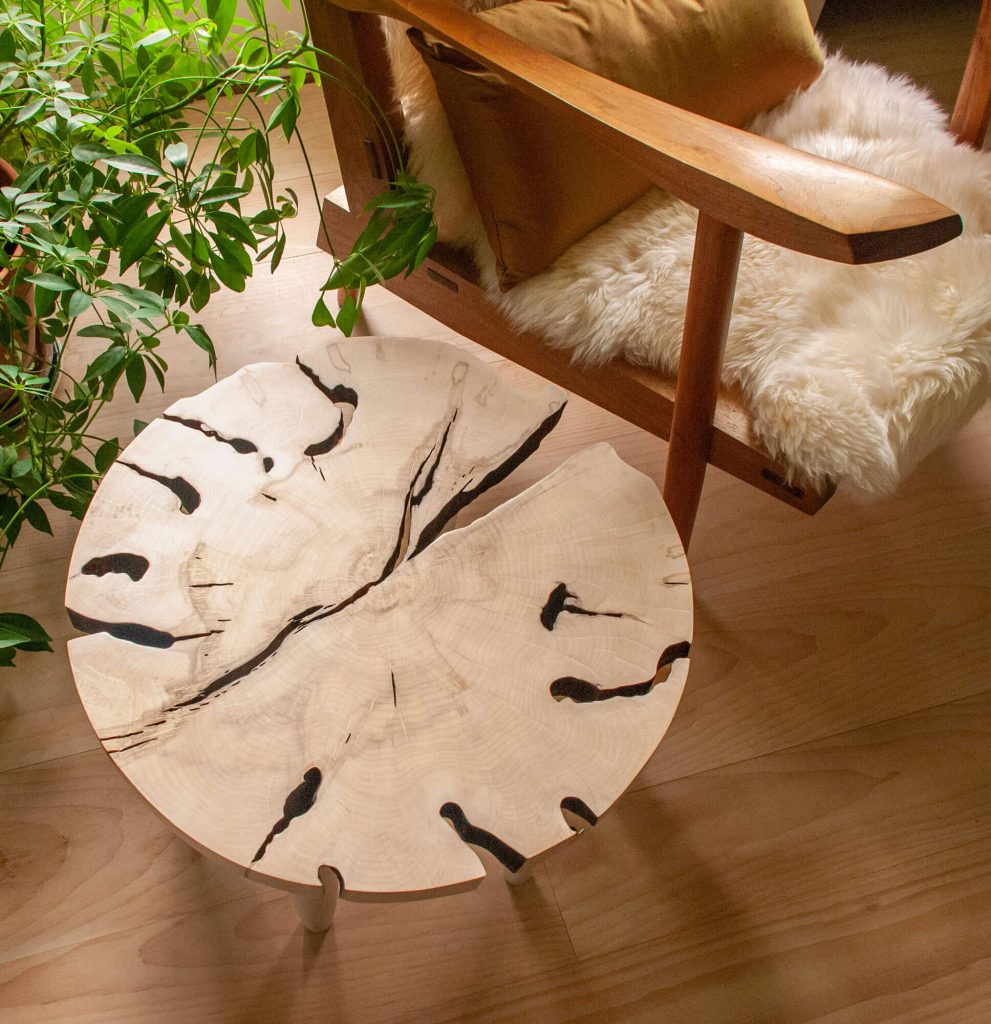

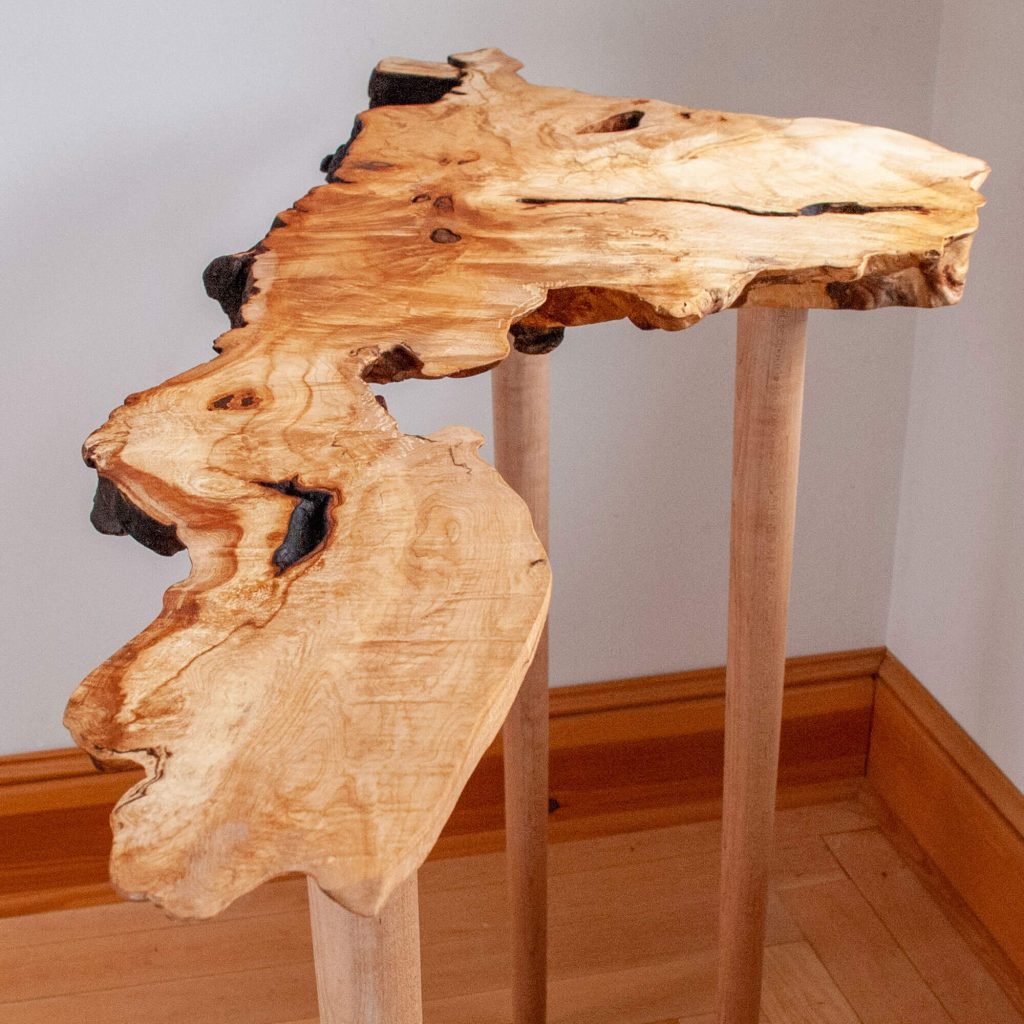

While they offer collections, STUDIO89 also works with clients to create one-of-a-kind pieces. They gather at the studio for the initial collaboration process, where Nondas and Melissa often continue to work on the design in situ. As for the clients, it is undeniably special to have their vision brought to life. “When our clients help create something, and their energy goes into it, they appreciate it differently,” Nondas says. “It becomes a part of their lives.” That outcome hearkens back to STUDIO89’s ethos: Live better with fewer things.
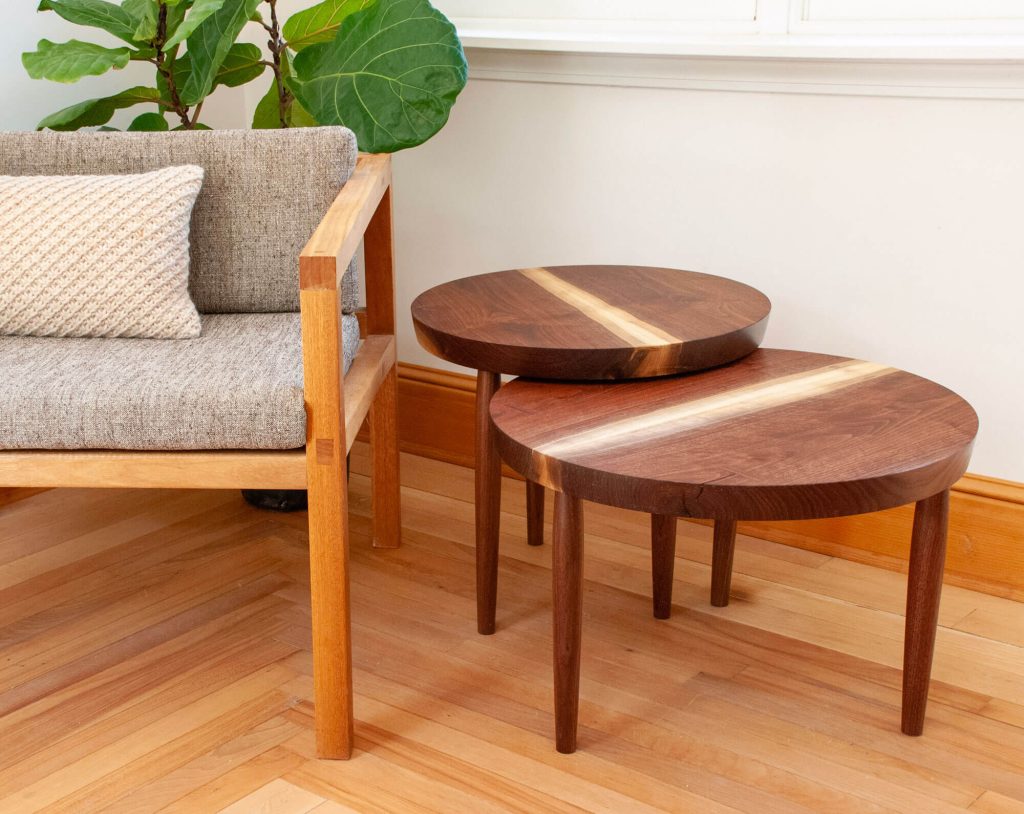

As Nondas and Melissa act as storytellers for the wood they shape into furniture, they hope that each piece becomes a storyteller for its new owners’ lives—as the wood patinas, it collects the imprint of all those who have interacted with it, creating an everlasting tale.

